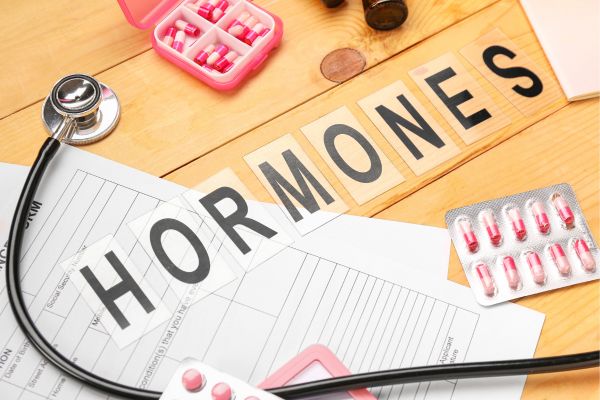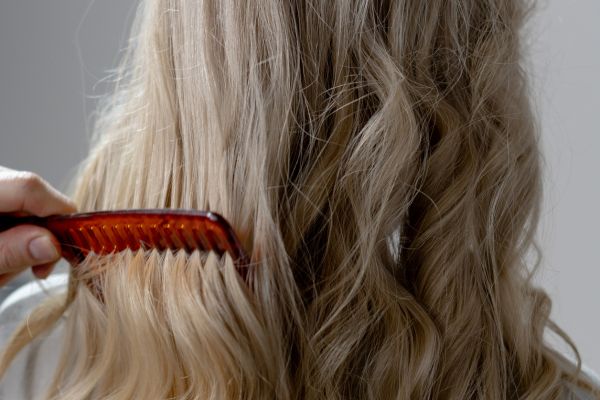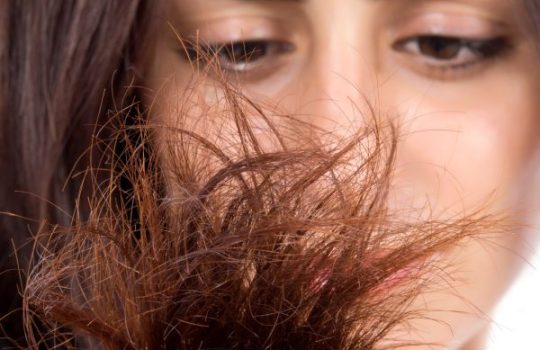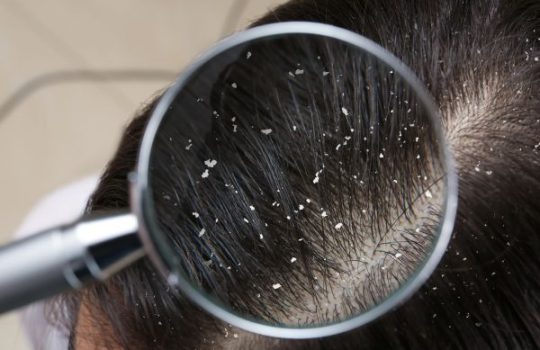Hormones and hair: Better understanding their link
Having healthy, radiant hair sometimes goes beyond hair care. Hormones play a very important role in the growth and beauty of hair. From the anagen phase to the management of hormonal imbalances, we tell you everything about the complex relationship between hormones and hair !

Hormones and hair: what is their role in growth?
Because there are hormone receptors in hair follicles (the base of our hair which is located under the skin at our scalp), hair growth is a stage influenced by certain types of hormones! Sex hormones like estrogen and testosterone, as well as thyroid hormones and growth hormones, play a major role in this process.
Sex hormones (estrogens and testosterone): Estrogens are predominant hormones in women, they prolong the active growth phase of hair and improve the beauty and health of the hair fiber. Testosterone, on the other hand, is a predominant hormone in men, which sometimes converts to dihydrotestosterone (DHT) and can make hair follicles smaller and finer. This weakens the hair fiber and can lead to a loss of density; this hormone is also associated with male and female baldness.
Growth and thyroid hormones: During the growth phase, thyroxine and growth hormones such as somatotropin (GH) and insulin-like growth factor 1 (IGF-1) help cells multiply. In other words, these hormones stimulate cell reproduction during hair growth.
Hormone receptors in hair follicles regulate hair growth and cycle based on hormonal signals. Therefore, hormonal fluctuations can affect hair health and hair growth.
Just that ! This treatment is particularly recommended for hair looking to improve its health and appearance while targeting various concerns such as frizz, lack of shine or vitality.

The impact of hormones on the hair growth cycle
The anagen phase (growth): Estrogens prolong the anagen phase because they allow cells to multiply, for more hair density! Testosterone can shorten this phase by having a negative impact on cells.
The catagen (transition) phase: Estrogens prolong the anagen phase, but testosterone shortens the transition phase and pushes hair towards the shedding (telogen) phase, which impacts the length of the hair cycle.
The telogen (shedding) phase: By prolonging the growth phase, estrogens limit the number of hairs that go into the shedding phase, which is not the case for testosterone which pushes hair more quickly towards this phase.
Hormonal imbalances disrupt hair health
A good hormonal balance is important for having beautiful hair, because the link between hormones and hair has a direct impact on its growth, loss and density. This is why, when a hormonal imbalance occurs, it can disrupt the health of our hair.
Thyroid disorders: Hypothyroidism and hyperthyroidism can prolong or shorten the resting phase, which has a direct impact on hair density. There is medical treatment to restore this hormonal balance.
Pregnancy: Hormonal changes during pregnancy affect hair growth. Hair becomes thicker for a while, but this may be followed by temporary postpartum shedding. This type of change is normal, but a medical consultation can provide appropriate advice.
Learn more about postpartum hair loss in our dedicated article >
PCOS: Polycystic ovarian syndrome (PCOS) causes hormonal imbalances that directly affect the hair growth phase, which can lead to more hair loss. Oral contraceptives can be used to address this hormonal imbalance.

Hormones and hair: the importance of balance in the quest for healthy growth
To have optimal hair growth, you absolutely must have hormonal balance. To do this, it is possible to adopt simple habits that can help on this path. For example: a balanced diet, stress management or even regular physical activity help to maintain this balance. It is also advisable to avoid harsh hair products and opt for gentler alternatives. If you have any doubts about your internal balance, there is nothing better than a medical consultation to get personalized advice, do hormonal tests and have appropriate treatment if necessary.
Learn more about the link between hormones and hair on our Instagram account >






